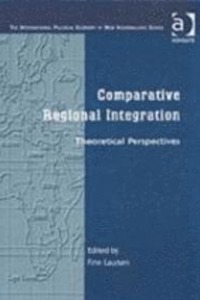
Liknande böcker
Elements of Economic and Political Institutions That Impact Prosperity in ECOWAS Development
Bok av Muminatu Jaló
This book summarises an investigation into elements of the economic and political institutions that affect prosperity in ECOWAS development. Information and material enclosed was obtained from most relevant literature and publicly available data. The work evaluates the macroeconomic consequences of various programs and policies, which are represented through key selected mainstream indicators for ECOWAS countries from 1960-2013, contrasted with the European Union 28 countries in the same period and illustrating the specific situation of Guinea-Bissau. It was found that actual progresses in the theoretical domain are slow, solid formal models are lacking, and inconsistency predominates as challenges, outcomes and relations from inputs to outputs are mostly evidenced by adoption of anecdotal examples. Negative prosperity is the norm and thus, the question of how, and what, the institutions are doing to address it, becomes especially relevant. It is also observed that the available source data is inconsistent and controversial; for same indicators, it varies wildly at intra and inter organisations. In the likeliness of many of the current aid and structuring programmes being based on data from the mentioned sources, a risk emerges that, even though mathematic and economic models may be advanced, they are based on fundamentally unreliable data that push wrongdoing and hinder prosperity. It also emerges that, frequently, institutions and programmes do have negative impact on the sub-region, because the framework that they provide is based on western values, mostly carried by western experts or local experts that acquired western behaviour and values ignoring the rural and peri-urban populations. It was found that circumstances where cultural differences are not accounted for, namely in acceptance of the distribution of power, collaboration, personal relations, traditions and manners of performing work and duties as well as managing free time, potentially hinder societal development.







